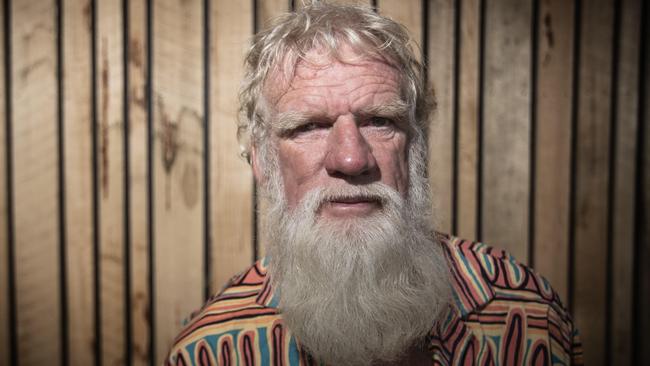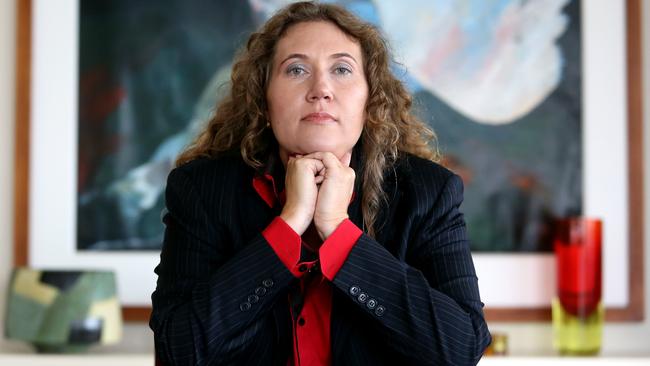Bruce Pascoe story a reminder there’s no ‘positive’ discrimination
Bonkers belief that one must have certain immutable characteristics to write about particular issues is fatuous nonsense.

I see the Bruce Pascoe-Dark Emu story is turning into my story. He is alleged to be telling a story not his own, and to have profited — in the form of jobs, research grants and literary awards reserved for Aborigines — by claiming racial origins he does not have.
People clearly are trying to force him into taking a DNA test in the wake of various Aboriginal communities disclaiming his association with them, something amplified by the situation now becoming a police matter.
Clearly, if Pascoe’s Aboriginal heritage turns out to be marginal or non-existent, the plan is utter humiliation and perhaps a criminal conviction, much like what was done to US politician Elizabeth Warren, or before that to Rachel Dolezal. The latter claimed to be African-American, and had the sort of big hair and deep tan that allowed her to pull it off for decades. Much is conveyed by the phrase (from s134.2 and s135.1 of the Criminal Code) “obtaining a financial advantage by deception and general dishonesty offences”.
I’m horrified at the thought of a “register of Aborigines” — as if that sort of thing hasn’t led anywhere awful historically — although I recognise those proposing it are inspired by the way often wealthy Native American organisations manage their affairs. Often demanding members have a quarter of the relevant ancestry coupled with periods of residence, such tribal membership rules permit groups such as the Navajo to police who gets access to revenue from casinos or other local enterprises. They also allow First Nations people to give opportunistic sorts a boot up the jaxie, as the Cherokee did to Warren when she made too much of her background.
I think it needs to be said that Dark Emu stands or falls on its merits, not the race of its author. The bonkers belief that one has to have certain immutable characteristics to write about particular issues is fatuous nonsense and amounts to an attack on all creative endeavour. One of the reasons I did what I did when I wrote The Hand that Signed the Paper and pretended to be Helen Demidenko was to expose this claim for the hooey it is.

A deracinating horror of our age is the persistent attempt to re-racialise everything, as though there won’t somehow be knock-on effects. Believe me, making everything about race gives oxygen to racists and no one else. Relatedly, allowing minorities of all kinds (and women) to hide behind “lived experience” and raise their race or sex as a shield against criticism is inimical to civil society and political debate. This is especially the case because “lived experience” is treated as a form of insider knowledge, as though the only person qualified to comment on Bernie Madoff’s spectacular Ponzi scheme is Bernie Madoff.
This is part of a wider phenomenon British author Douglas Murray identified in his book The Madness of Crowds: while pretending to know everything about something that is scientifically underpowered (trans, say), we’ve also “forgotten” things everyone knew until yesterday. Here, we’re forgetting the truism that some people don’t learn from experience, while other people don’t need experience to learn. “Lived experience” often wastes its lessons on dead men, and we’ve all met people who can do in a month what took us five years to master. Anyone who has ever held a job knows this.
Being of “the right race” or having “lived experience” shouldn’t confer extra authority points. I had this argument over The Hand that Signed the Paper and I’m happy to have it again. This point is especially important for those who — for whatever reason — need Pascoe to be Aboriginal for Dark Emu to be “true”.
If Pascoe’s alleged race is making it difficult for professional anthropologists to scrutinise his factual claims, that’s a comment on the state of civil society and academic discourse. If Pascoe or his supporters have raised his race as a shield against legitimate criticism, or he has won awards on the basis of his alleged race, or been able to undertake certain kinds of research only thanks to being of the “right” race, then Australia has a problem and all he has done is respond to perverse incentives.
These perverse incentives have existed for a long time. I admit I made use of them in 1995. However, I did so with a view to blowing them up. Some basic economics: you get more of what you subsidise and less of what you tax. This means if you subsidise Aboriginal writing, you will get more “Aboriginal” writers. We have been here before: Colin Johnson (“Mudrooroo”), Leon Carmen (“Wanda Koolmatrie”), Roberta Sykes. Johnson and Sykes turned out to have African-American ancestry. Carmen was white.
That said, Pascoe’s historical claims do require scrutiny. The man hasn’t written a novel but serious nonfiction. His core claim — that much of Aboriginal Australia was an agricultural and not a hunter-gatherer civilisation — is huge.
One suspects, if it were true, Aboriginal resistance to the British would have resembled the Maori in New Zealand, the Zulu in South Africa and Native Americans in the US. Stable agricultural economies produce effective warriors thanks to the division of labour and sufficient wealth to support standing armies. Yes, they will be beaten eventually by an industrial power with firearms, as the Maori and Zulu and Native Americans were, but they will put up one hell of a fight. The Aborigines didn’t.
There is also the simple matter of establishing an accurate historical chronology.
British writer Michael Crowley — author of an acclaimed work on First Fleet convict James Ruse, The Stony Ground — makes the standard claim that Ruse was Australia’s “first self-sufficient farmer”. Crowley is on tour in Australia and an event at Sydney’s Mitchell Theatre last week — supposedly about The Stony Ground — instead turned into a debate about Pascoe. “Someone just bought me Dark Emu, where (Pascoe) talks about an Aboriginal agricultural economy,” he told me.
In front of a large crowd, Crowley found himself utterly wrong-footed. “Couple of folks said outright he’d made his sources up. I didn’t raise his claims; the audience did.” Who is right, Crowley or Pascoe? Accuracy is important because, as the Roman statesman Cicero observed, “not to know what happened before you were born is to remain forever a child”.
Once again from the top: governments cannot discriminate. When they do, situations such as this arise. If the private sector wants to hand out prizes on the basis of race or sex or age, of course that is a different matter. Private bodies can set their own rules (DNA tests, birth certificates, whatever). I have won one such prize — The Australian/Vogel Literary Award, for people under 35. It is wholly private sector; its sponsors are a baking firm and this newspaper.
I would much rather — should a trans woman wish to enter the Stella Prize, say (a private sector award for female writers) — this sort of thing be disposed of by means of a civil suit between ordinary members of the public over rules of entry, not a criminal trial taking in a police investigation and the coercive powers of the state.
I am also reminded that Pauline Hanson won her first parliamentary term in 1996 largely on the basis of public anger at different (and more lenient) welfare rules for indigenous Australians as opposed to everyone else. The Pascoe contretemps is a timely reminder that there is no such thing as “positive discrimination”, only “discrimination”, and the state simply should not indulge or excuse it no matter how noble the cause. There are no winners here; the whole wretched business is the poisoned fruit of a tree planted in the naive belief that it’s possible for racial and sexual discrimination to be something other than bad.
Helen Dale won the Miles Franklin Award for her first novel, The Hand that Signed the Paper. Her most recent novel, Kingdom of the Wicked, was shortlisted for the Prometheus Prize.



To join the conversation, please log in. Don't have an account? Register
Join the conversation, you are commenting as Logout